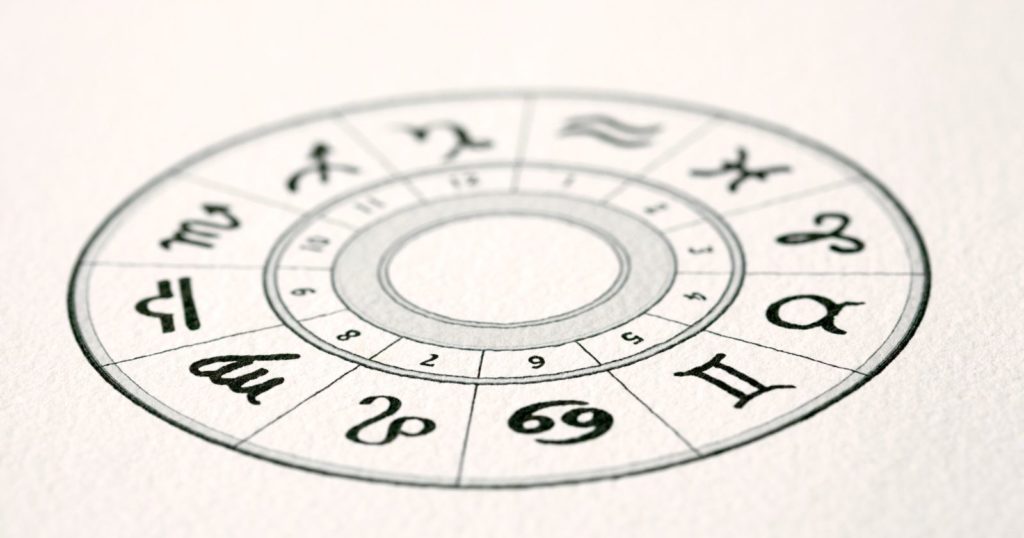The Intersection of Spirituality and Astrology
Astrology, the study of celestial bodies’ movements and relative positions and their supposed influence on human affairs and natural phenomena, has long fascinated people across various cultures. Zodiac signs, derived from astrology, have become an integral part of pop culture. Despite its prevalence, the Bible’s view on astrology and the Zodiac often remains unclear to many.
The Bible, a fundamental text in Christianity, contains numerous passages, stories, and metaphors that have been interpreted in various ways. It offers insights on various aspects of life and spirituality, but does it address astrology? To answer this question, we must delve into the scriptures, historical context, and interpretative frameworks.
Biblical Context: A Glimpse into Ancient Astrology
To comprehend the Bible’s stance on astrology, it’s crucial to understand the context of the ancient world. During biblical times, many neighboring civilizations like the Egyptians, Babylonians, and Persians relied heavily on astrology. The positions of celestial bodies were interpreted to predict events, make decisions, and even guide kings. However, in the Jewish tradition, which the Old Testament primarily records, we find a different perspective.
In the Old Testament, there are numerous instances where God’s chosen people were instructed not to follow the practices of neighboring pagan nations, which included various forms of divination and astrology. The Jewish faith centered around a monotheistic God, distinct from the pantheon of deities represented in the stars by other cultures. Therefore, this context becomes the backdrop against which we interpret the Bible’s references to astrology.
Biblical Passages: Indirect References to Astrology
The Bible does not explicitly mention astrology or the Zodiac in the way we understand them today. However, several passages indirectly reference practices similar to astrology. For instance, in Isaiah 47:13-14, God rebukes Babylon for its astrologers and stargazers, stating they cannot save themselves from God’s judgment.
The book of Deuteronomy (18:10-14) also warns against those who interpret omens or engage in divination, which could include astrological practices. These passages suggest a disapproval of practices that rely on celestial interpretations for human decision-making or future predictions, favoring instead a trust in God’s sovereignty and wisdom.
Delving Deeper: Biblical Interpretations on Astrology
Astrology vs. Astronomy in the Bible
Before we proceed, it’s crucial to distinguish between astrology and astronomy, a distinction often blurred in ancient times. Astronomy is the scientific study of celestial objects, space, and the physical universe. In contrast, astrology attempts to correlate celestial events with activities on earth, interpreting these for human guidance and prediction.
The Bible does include references that highlight the significance of celestial bodies, but they lean more toward astronomy than astrology. For instance, Genesis 1:14 speaks of stars and other celestial bodies created by God for signs, seasons, days, and years. It does not, however, endorse the idea of these bodies determining individual human destiny or behavior.
The Magi and the Star of Bethlehem: Astrology or Divine Guidance?
One of the most debated instances is the story of the Magi in the New Testament (Matthew 2:1-12). The Magi, often considered as ‘wise men’ or ‘astrologers,’ followed a star to find the baby Jesus. Some argue that this account legitimizes astrology, while others believe it signifies divine intervention rather than astrology.
The critical distinction lies in the source of guidance. While the star led the Magi, it was ultimately God who used the star to guide them, pointing towards a divine orchestration rather than the Magi interpreting celestial signs independently. The story does not imply that they—or we—should routinely seek guidance from the stars.
Christianity and Astrology: A Contemporary Perspective
The Compatibility of Astrology and Christian Beliefs
From a contemporary Christian perspective, astrology is generally viewed as incompatible with Christian doctrine. This view emanates from the fundamental Christian belief in the sovereignty and providence of God. The idea that stars or planets could govern our lives or predict our futures tends to undermine God’s control and plan for humanity.
Moreover, astrology’s focus on self—a central tenet being the shaping of one’s life according to their astrological sign—often conflicts with the Christian emphasis on the transformation of self in line with God’s will. This contrast, therefore, raises questions about astrology’s compatibility with Christian principles.
Horoscopes and Christian Life
Horoscopes, an integral part of astrology, predicting one’s day or future based on their Zodiac sign, are particularly problematic from a Christian perspective. Using horoscopes as a guide or predictor of one’s life events can be seen as an attempt to sidestep the element of faith and trust in God’s plan.
In James 4:13-15, Christians are reminded of the uncertainty of life and the importance of recognizing God’s will in their plans. This passage is often interpreted as a caution against presuming to predict the future, a practice central to horoscopes. Therefore, reliance on horoscopes may diverge from the Christian principles of trusting and acknowledging God’s sovereignty.
Concluding Thoughts: Astrology Through the Biblical Lens
Understanding God’s Creation
While the Bible does not directly endorse astrology, it undeniably encourages the appreciation of the heavens as God’s creation. Psalms 19:1 states, “The heavens declare the glory of God; the skies proclaim the work of his hands.” Christians are called to marvel at the universe, not for divination, but as an acknowledgment of God’s majesty and creativity.
Freedom and Responsibility in Interpretation
The interpretation of the Bible on any topic, including astrology, requires careful analysis, cultural understanding, and a balanced perspective. It is essential to approach the scriptures with an open mind and respect for their historical and cultural context. Remember, the Bible’s teachings are meant to guide, offering principles for life and spiritual growth, not to constrain intellectual curiosity or personal freedom.
Trust in God’s Sovereignty
Finally, in understanding what the Bible says about astrology, we are reminded of the Christian belief in God’s sovereignty over our lives. Astrological signs or celestial bodies do not control our destinities. Instead, Christians believe in a personal God who cares for each individual. This belief doesn’t negate the appreciation of the stars and the cosmos, but it does challenge the idea that they hold sway over our lives.
References:
- Isaiah, Jeremiah, Lamentations (Understanding the Bible Commentary Series) – Tremper Longman III
- Matthew (The NIV Application Commentary) – Michael J. Wilkins
- Genesis (The NIV Application Commentary) – John H. Walton




